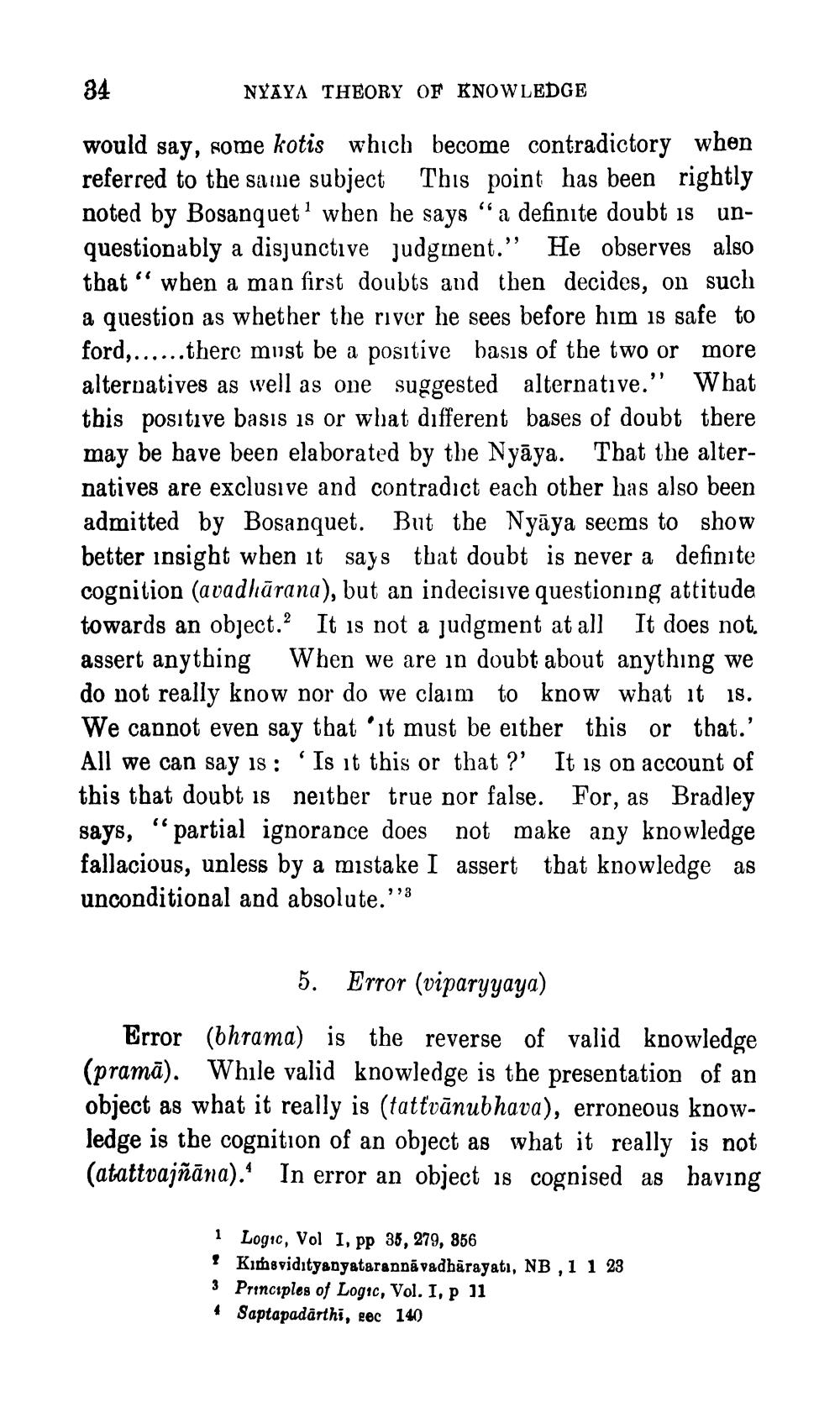________________
34
NYAYA THEORY OF KNOWLEDGE
""
would say, some kotis which become contradictory when referred to the same subject This point has been rightly noted by Bosanquet1 when he says a definite doubt is unquestionably a disjunctive judgment." He observes also that "when a man first doubts and then decides, on such a question as whether the river he sees before him is safe to ford,......there must be a positive basis of the two or more alternatives as well as one suggested alternative." What this positive basis is or what different bases of doubt there may be have been elaborated by the Nyaya. That the alternatives are exclusive and contradict each other has also been admitted by Bosanquet. But the Nyaya seems to show better insight when it says that doubt is never a definite cognition (avadhārana), but an indecisive questioning attitude towards an object.2 It is not a judgment at all It does not. assert anything When we are in doubt about anything we do not really know nor do we claim to know what it is. We cannot even say that it must be either this or that.' All we can say is: Is it this or that?' It is on account of this that doubt is neither true nor false. For, as Bradley says, "partial ignorance does not make any knowledge fallacious, unless by a mistake I assert that knowledge as unconditional and absolute.' 113
6
5. Error (viparyyaya)
Error (bhrama) is the reverse of valid knowledge (prama). While valid knowledge is the presentation of an object as what it really is (tattvānubhava), erroneous knowledge is the cognition of an object as what it really is not (atattvajñāna). In error an object is cognised as having
1 Logic, Vol I, pp 35, 279, 856
Kimsvidityanyataranna vadharayatı, NB, 1 1 23
3 Principles of Logic, Vol. I, p 11
4 Saptapadarthi, sec 140




